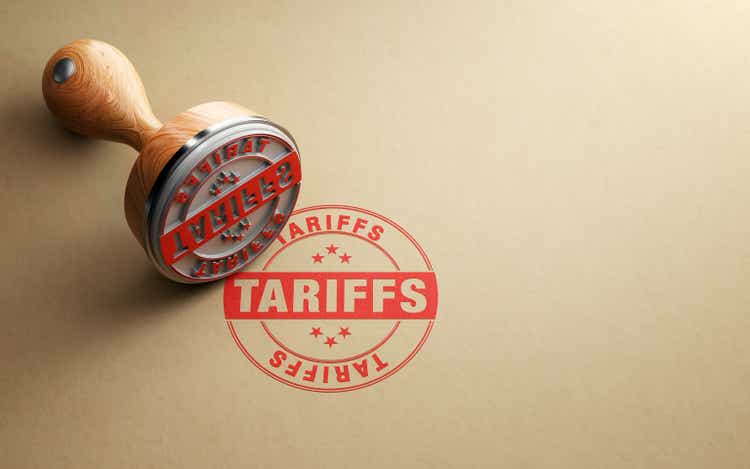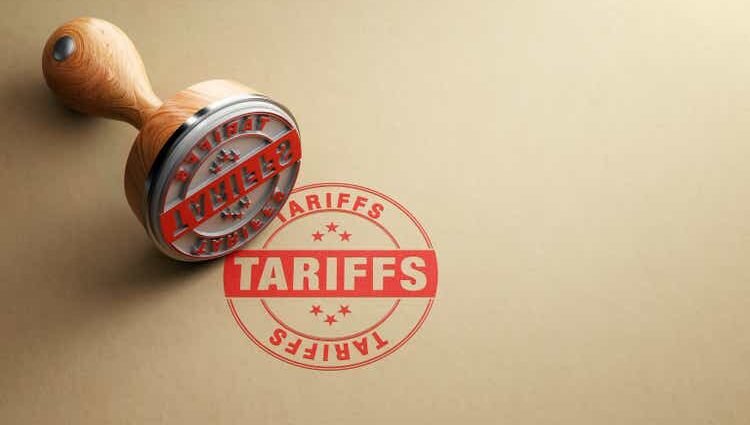
MicroStockHub/iStock via Getty Images
JPMorgan believes that a proposed round of tariffs under a potential second Donald Trump U.S. presidency could have a greater impact on consumer prices than they did in the Republican leader’s first term.
The imposition of tariffs by Trump, who served as U.S. President from 2017 to 2021, was one of the biggest policies of his administration. His government had levied tariffs on thousands of products valued at about $380B in 2018 and 2019.
Trump has promised similar policies if reelected – a 60% tariff on all Chinese imports and a 10% universal tariff on all imports from the rest of the world.
The GOP presidential candidate on Thursday sparred over the issue with incumbent President Joe Biden at the first televised debate hosted by CNN. Trump asserted that his tariff proposals would not drive consumer prices higher. Biden shot back and said that they would cost the average American $2.5k a year or more.
“The Trump 1.0 tariffs increased the trade-weighted average tariff rate from around 1.5% to just over 3%, raising an additional $60B in customs revenue. If this all fell on consumers it would have raised the basket of consumer prices by around 0.3%,” JPMorgan’s Michael Feroli said in a research note on Friday.
“Evidence from that period suggests that there was less than complete pass-through to consumer prices. In other words, retailers and other businesses swallowed some of the higher tariffs. On the other hand, there is also evidence that domestic producers used some of the increase in market power to push through higher prices. So we think 0.3% is a reasonable estimate of the price level effect of those tariffs,” the analyst said.
“Following a similar reasoning, a 60% tariff on all Chinese imports—about a 48%-point increase—would statically raise just over $200B, raising the price level 1.1%. A similar calculation for a 10% universal tariff yields $280B, or about 1.5% on the price level,” Feroli added.
The analyst also noted that tariff announcements during Trump’s presidency had “large and adverse effects on the stock market.”
“This disconnect may reflect that trade models don’t capture intangibles like policy uncertainty. In any case, significant uncertainty attends to estimates of the impact on growth,” Feroli said.
For investors looking to track the elections through market instruments, here are some politically driven Republican and Democrat exchange-traded funds:
- God Bless America ETF (YALL)
- American Conservative Values ETF (ACVF)
- Point Bridge America First ETF (MAGA)
- Democratic Large Cap Core ETF (DEMZ)
- Unusual Whales Subversive Democratic ETF (NANC)
- Unusual Whales Subversive Republican ETF (KRUZ)
Dear readers: We recognize that politics often intersects with the financial news of the day, so we invite you to click here to join the separate political discussion.











